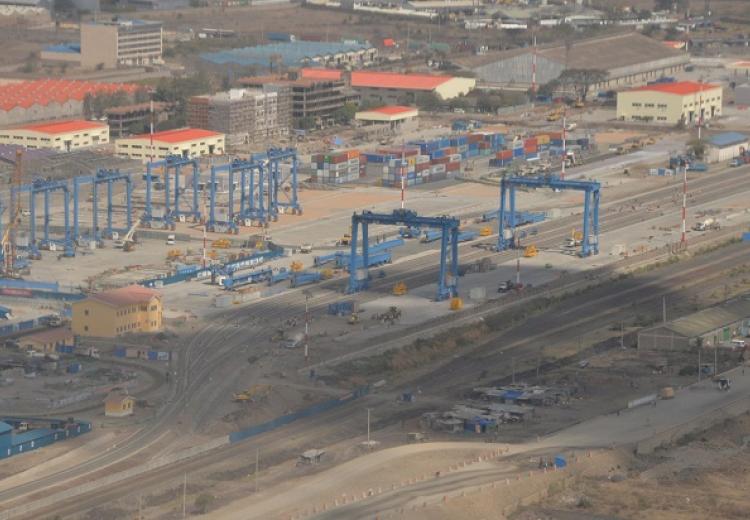Northern Corridor: Transport Logistics efficiency through Transport of Cargo by SGR Train
In the ongoing push to create more logistics efficiency and cost effectiveness, the Northern corridor will see more cargo transported by SGR Cargo train. All Stakeholders, including Shipping lines and the Government of the Republic of Kenya agreed to carry out an intensive campaign awareness on the benefits and incentives for Northern Corridor freighters to use a new model, where cargo terminates at the Nairobi Inland Container Depot (ICD) as opposed to the Port of Mombasa.
Nairobi ultra-modern inland container depot (ICD) upgraded at a cost of Sh22 billion
The model dubbed the “Through Bill of Lading” (TBL), is a legal document that details type, quantity and destination of goods carried beyond the sea port of destination. Under Through Bill of Lading, importers designate cargo directly to the Nairobi ICD, while the model that is widely used today is the merchant haulage where goods are off loaded at the Mombasa port.
The new model is expected to help in ensuring that more containers are loaded onto the trains hereby decongesting the port of Mombasa. The main challenge, according to the Kenya Ports Authority (KPA) operations officials, was on return of empty containers. But they confirmed that if the destination of the goods is listed as the Nairobi ICD, this would solve the problem.
In March 2018, the Nairobi ICD was receiving 324 containers moved by SGR Cargo Trains daily, up from 108 in January 2018
As a hindrance to the use of the SGR Cargo trains to transport their goods to the 450,000 twenty-foot equivalent unit (TEUS) capacity Nairobi ICD, importers and agents were mentioning demands by shipping lines that empty containers be returned to designated yards in Mombasa.
Shipping lines charge USD 200 and USD 400 as deposit for the 20-foot and 40-foot containers respectively and to be refunded when the containers are returned within 11 days after arrival of the vessel. A fine is imposed beyond the deadline and damages attract fees.
The Shipping lines had also insisted the containers must be returned to the yards, presenting logistical nightmare for Kenya Railways which could only drop them at the port with importers incurring a cost of USD 100 to shunt each container to the designated yards.
The agreement between the shipping line and the importer using the through bill of lading model is that the container deposits will be refunded once the equipment is returned to the ICD.
Moving empty containers on SGR to designated yards has no extra costs to the importers and has no logistical nightmares for the shippers who have to ensure that empty containers make a quick turnaround thereby avoiding demurrage charges.
Since January 2018, the Nairobi ICD facility received 9,735 containers which comprised of 7,248 imports, 1,151 exports and 1,336 empty containers. In March 2018, the Nairobi ICD was receiving 324 containers daily up from 108 in January 2018.
In the endeavour to encourage Northern Corridor Freighters to use the SGR Cargo trains, Kenya Railways lowered haulage rates to a flat fee of USD 350 for a 20-foot container and USD 400 for a 40-foot container from Mombasa to the Nairobi ICD.

